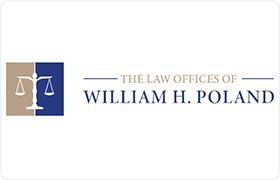Woodlawn Misdemeanor Lawyer, Tennessee
Sponsored Law Firm
-
 x
x

Click For More Info:
-
Law Offices of William H. Poland
408 Franklin St Clarksville, TN 37040» view mapCriminal Defense Law Sound, Professional, & Timely Service
As your attorney, you can be assured that we will use our best reasonable efforts to conclude your matter favorably and to keep you advised of the status of your case.
800-810-3461
Not enough matches for Woodlawn Misdemeanor lawyer.
Below are all Woodlawn Criminal lawyers.
Will Hall Poland
✓ VERIFIEDCriminal, Felony, DUI-DWI
What to know: We are a full-service law firm that focuses on the interest of our clients. I practice in the areas of: Bankruptcy Law, Criminal Law, Co... (more)
Will Poland
Criminal, DUI-DWI, Accident & Injury, Personal Injury, Workers' Compensation
FREE CONSULTATION
CONTACTAmy Catherine Bates
Adoption, Divorce & Family Law, Accident & Injury, Criminal
Status: In Good Standing Licensed: 16 Years
Jacob Prentice Mathis
Divorce & Family Law, Personal Injury, Criminal, Litigation
Status: In Good Standing
Debbie Evans
Criminal, Juvenile Law, Products Liability, Family Law
Status: In Good Standing Licensed: 30 Years
Joel Wallace
Criminal, Federal Appellate Practice, Legislative Practice, Credit & Debt
Status: In Good Standing Licensed: 19 Years
Justin Sensing
Criminal, Federal Appellate Practice, Civil Rights, Family Law
Status: In Good Standing Licensed: 14 Years
 Will Poland Clarksville, TN
Will Poland Clarksville, TN Practice AreasExpertise
Practice AreasExpertise

